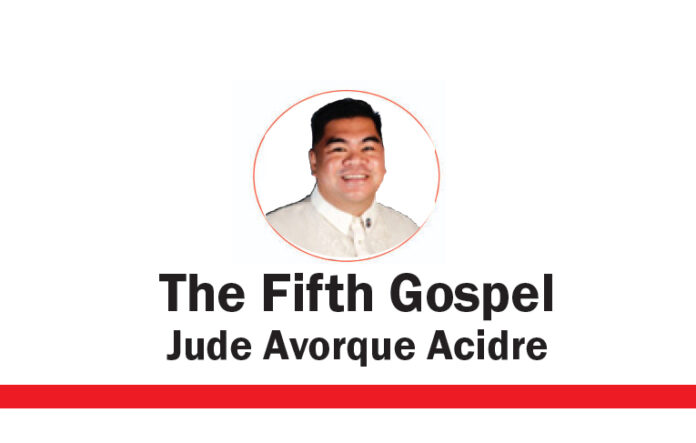“At the end of the day, we don’t write laws for the sake of policy. We write laws to make life better”
WHEN people ask me what a legislator really does, I always go back to the basics: we make laws.
That’s our main job. And to me, that’s not just a duty—it’s a calling. In the past three years, I’ve made it a point to prioritize legislative work above all else—attending plenary sessions, joining committee hearings, and pushing our party’s legislative agenda.
Legislation is at the core of our mandate. Everything else—our programs, projects, and public engagements—should support that. I’m proud of our track record.
As TINGOG Partylist, we authored more than 40 legislative measures that were signed into law, many of which I personally authored—covering economic reforms, healthcare, education, labor, and regional development.
These laws reflect our vision of a more responsive, more inclusive government that puts people first.
But the work doesn’t stop there. Several of our priority bills didn’t make it through the Senate. That’s part of the process. Legislation takes time, and passing a law is never a one-person job—it requires consensus, collaboration, and sometimes, compromise.
In the coming term, we’re ready to push even harder. These four are just among the many priority measures we intend to file in the next Congress:
First, the Civil Annulment Reform Act, which will make annulment more accessible, less costly, and less traumatic—because everyone deserves a second chance at happiness.
Second, the Civil Registration Act, which will provide free and accessible registration of births, marriages, and deaths, especially in remote and underserved areas—because legal identity is a basic right, not a privilege.
Third, the Pharmaceutical Innovation Act, which will invest in local research and production of life-saving medicines—so we’re not just prepared for future health crises, but also building a stronger biotech industry that can stand on its own.
And fourth, the Local Universities and Colleges Act, which will institutionalize support for colleges and universities established, owned, and operated by local government units—because quality higher education should reach every Filipino youth, especially in the provinces.
Of course, the most important law we pass each year is the General Appropriations Act—the national budget. It’s not just a list of expenses; it’s a reflection of our national priorities.
And here’s something not everyone knows: under the Constitution, all budget and revenue bills must begin in the House of Representatives.
That means your House representatives play a major role in deciding where government money goes.
In the 2025 budget, contrary to what many may believe, the House actually increased the funding for DSWD, DepEd, and CHED—going beyond what was originally proposed in the National Expenditure Program.
We also retained the PhilHealth subsidy, but with a firm call for greater transparency and reform. The only budget we trimmed was that of the Office of the Vice President—and even that decision was subjected to full and open deliberation, as any democratic process demands.
The controversial changes that later drew public attention were actually introduced after the House had already approved its version of the budget.
Under the leadership of Speaker Martin Romualdez, the House has worked closely with President Ferdinand “Bongbong” Marcos to deliver on key priorities—from economic recovery and digitalization to food security and social protection.
We’ve passed landmark bills, often ahead of schedule, making sure that the House is not just reactive, but forward-looking.
But here’s what I’ve learned on the ground: most people don’t measure our work by the number of laws we pass. They measure it by the help they receive—the medical assistance, the scholarship, the livelihood support.
Even our LGU partners often expect us to go beyond legislation and deliver services on the ground.
And that’s okay.
Because while that’s not technically part of our job—it’s part of our responsibility.
We understand the needs of our people.
And we use the tools we have—like the power of the purse and the power of oversight—to make sure programs reach those who need them most.
At the end of the day, we don’t write laws for the sake of policy. We write laws to make life better.
Because if legislation is done right, it doesn’t just change policies—it changes lives. And that, more than anything, is the legacy we hope to leave behind.








